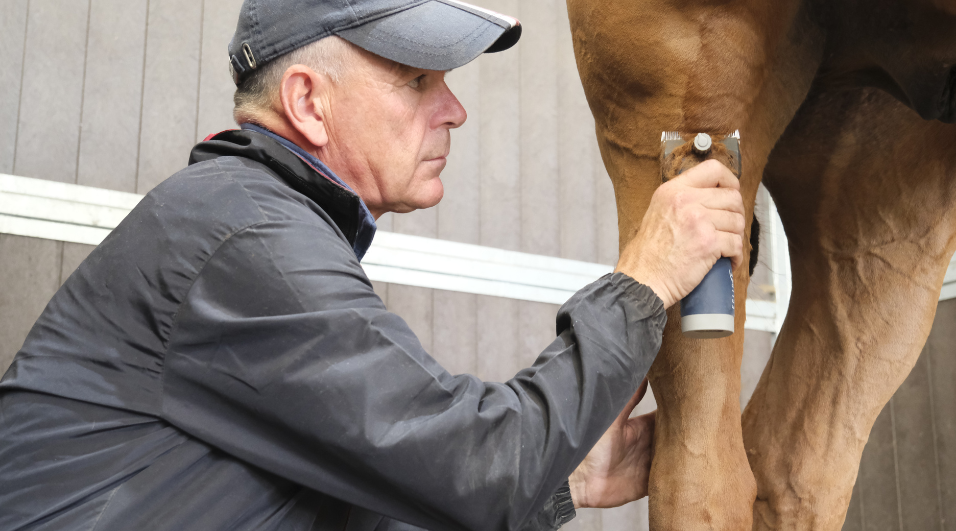News | 12 November 2023
Sedating a horse for clipping: The pro's and con's
As we now power through into clipping season, many horse owners are faced with the troubling question of whether we should sedate a horse to be clipped. While many horses are accustomed to being clipped, some can become nervous and fearful from either a previous negative experience or just general uncertainty. To manage such horses, sedation is sometimes considered. But is this a good idea? In this blog we discuss the pros and cons of sedating a horse for clipping.
PROS
Owner and horse safety
The primary reason for sedation is safety. A stressed or scared horse can pose risks. Sedation can help keep the horse calm, reducing the chances of accidental injury to both the horse and the groom.
Reduces Stress for the Horse
If a horse has had traumatic experiences with clipping or is generally nervous, sedation can make the process less stressful, however, this is typically NOT a solution to desensitising your horse for clipping, it is simply a quick fix.
Time-Efficient
A restless horse can make the clipping process much longer, and for working yards that require horses to be turned around in due time, this is sometimes used as a solution.
CONS
Potential Health Risks
Like any medical procedure, sedation carries risks. While rare, reactions to sedatives can occur, which might result in respiratory or cardiovascular issues.
Masks Training Needs
If a horse is consistently sedated for clipping, it might mask underlying training or behavioural issues. We always recommend working with your horse to overcome these negative experiences and implementing positive reinforcement. With a little bit of patience and consistency, clipping can become a positive experience for the horse. For more information on how to approach a nervous horse with clipping, head over to our blog.
Cost
Sedation involves additional costs, both for the sedative and potentially for a veterinarian's time.
Dependency
Regularly sedating a horse for routine procedures like clipping can lead to over-reliance. It's always beneficial to desensitise horses to such procedures without the need for sedatives.
Whether or not to sedate a horse for clipping is a decision that should be made on a case-by-case basis, it’s essential to weigh the benefits against the risks and to consider alternative methods of achieving a calm, safe, and positive clipping experience.
If you're considering sedation, consult with your veterinarian. They can offer guidance on the best approach for your specific horse and situation.

